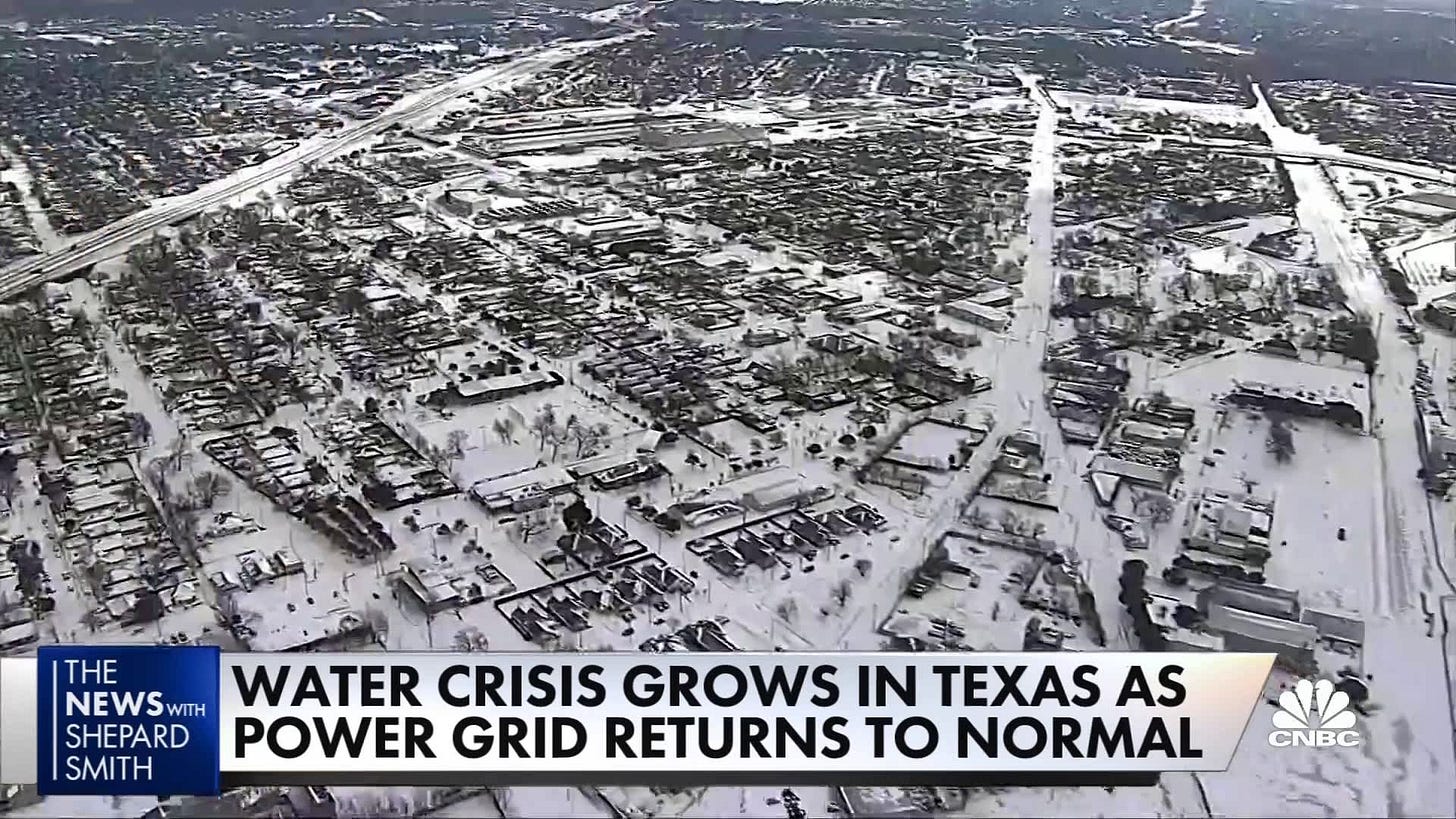My old professor friend Paul Magelli had one of the best lines ever when it came to entrepreneurship. “If you don’t eventually make net income, what you are doing is a hobby.”
A huge chunk of the CleanTech space is exactly that. A hobby. Sorry to be so blunt.
Entrepreneurship is hard. Great entrepreneurs build companies that solve real problems. They grab outsize gains from solving those problems.
I saw this article this morning and thought I might write about it to try and save you some money. As investors, we all have anti-portfolio’s. These are companies that we had a legit shot at investing in but passed. Every good investor has them.
What few of us keep track of our investments we didn’t make but failed anyway. Those pitches go into our memory bank. That information you might have gleaned helps you analyze new opportunities. But few investors actually track those companies.
Quoting from the article,
With 72 percent of people now concerned that climate change will cause them personal harm during their lifetimes, we seem to have reached an inflection point:
The Biden administration has designated climate change as one of its critical concerns—perhaps the top priority—so it’s likely that the sector will only continue to grow. The goal is a carbon-free electrical grid by 2035, on the way to net-zero emissions by 2050. Likewise, the president’s current infrastructure plan calls for the allocation of $73 billion toward overhauling the nation’s electrical grid along with heavy subsidies for a variety of clean infrastructure projects.
Contrastingly, a decade ago, companies that worked toward a greater good weren’t generally viewed as portfolio cornerstones. Soon, however, they might be the only companies left. According to the Global Sustainable Investment Alliance, roughly one-third of all managed assets worldwide take into consideration sustainability criteria during investment. As more investors evaluate investments based on environmental, social and governance factors, “doing good” is becoming a prerequisite for “doing well.”
FYI, he is quoting a Pew Research study stat on that 72%. He is also leaning on the heavily biased IPCC organization for data.
I am going to make the bet that most of the money going into clean tech will be lost in the next five to ten years. The millions that are going into funds will be wasted. But, true believers are going to believe.
When they all fail, they will blame a change in political power. But, that’s not the problem. They are totally misreading the data and the problem.
Let’s dissect this shall we?
If you are investing in something because the politicians are tossing money at it, or say it is a problem, you will lose as soon as they stop tossing money at it. It’s also likely it isn’t a problem.
If you are investing because you want to “do good” or “do well”, you will lose. Oil companies that drill and refine oil do good and do well. You get to put fuel in your tank and get to work. Life is a lot nicer with cars than horses and buggies. You had to feed, store and clean up horseshit with horses. Roads were dusty and dirty. Henry Ford did good and did well by people.
Here is the first derivative of Professor Magelli’s statement at the top of this blog. All companies that earn a profit are doing good or doing well. Someone somewhere is paying them to solve a problem that is too expensive to solve on their own. It doesn’t matter what you “feel” about it.
Let’s think about the broader problem, “climate change”. Is it a problem?
If you listen to the intellectual elite at cocktail parties, yes it certainly is a problem! But, let us focus on other issues which are super hard to tease out since the issue is so politicized. There are literally two sides to the data coin, the mainstream media which parrots climate change data. A lot of that research is funded by governments and isn’t objective. It’s just people with degrees looking to get their next paycheck from the government trough. Then there are blogs like this one which consistently poke holes in the data.
Of course, there is just observation which is the first thing you learn in grade school science. Over the course of my lifetime, the temperature and climate have changed very very little. Just look at record high and low temps in various parts of the world. Some are from early last century. If the climate was changing rapidly, those records would be broken.
No one that has an opinion is going to be persuaded by the other side. No one.
One key question that virtually no one talks about is this; If the temperature of the earth is rising, is it statistically significant? I mean, one to three degrees, does it really matter? It’s intuitively obvious that a one to three degree rise in temp would be better than a one to three degree drop. Cold weather takes more resources and energy to survive in.
It turns out small variations in temperature don’t matter.
Another key question is this; If the temperature is rising, what can we do to stop it? The answer is all the world’s governments would have to ban together to do it. There is absolutely zero chance of that happening.
You might say, someone has to lead. This could be true. However, when you lead someone down the wrong path, it doesn’t help. Wind and solar are totally the wrong path for an on-demand information economy.
Even though the Chinese are communists, they act like rational players in a free market system when it comes to world politics. They act in their own best interest. Based on the solutions put forward by the “global warming is happening” side, the Chinese, Indians, and all of Africa would have to convert from fossil fuels to “sustainable energy” for there to be any meaningful difference. That also assumes that the democratized Western world does the same.
Read that paragraph again. Does that sound like something a startup can solve?
Then there are the words, “sustainable energy”. All energy is sustainable if you keep feeding it. So far, anyone that has predicted peak oil or peak coal has been wrong. We keep innovating new ways to find, mine, and refine it. Let me refresh your memory to last winter when the state of Texas relied too much on sustainable energy
Sustainable energy doesn’t work for an on-demand information economy. Sustainable energy never works for investors unless there are government subsidies. I want to repeat that. Sustainable energy never works for investors unless there are government subsidies. You might try reading that line like this: If I put money in this project that is backed by government subsidies, I will lose money unless they continue in perpetuity which means I or the company I invested in will have to engage in crony capitalism for the rest of its life.
The other thing to bear in mind is the cost to get something to market, and the time it takes.
If you are a micro-VC, you might be smart enough to identify an opportunity. But, you won’t have the money to fund it. Energy projects take millions and millions of dollars. They are heavily regulated and those regulations cost millions and millions of dollars. If a micro-VC puts money in a project, they will be so crushed down and diluted in the capitalization table by the time the project exits they won’t make money. There is always an opportunity cost to investment. Always.
In my investing history, there were plenty of investments that had identified real problems that I saw. I didn’t invest even if I believed the entrepreneur could get the job done. The time to market and the amount of lift it would take was too arduous and it was almost a certainty I would either lose money or not make much.
In the VC business, your goal is to 3x your fund but you can never ever invest in something that will only return 3x. If you are investing in an area that has a higher degree of failure than other areas, the amount of return you must see your way clear to garner has to be a minimum of 30x or better. Especially smaller funds since the dilution hit will be huge.
I am not an energy expert, but I know people that are. Chris Collins, a friend of mine from Chicago Booth is. He has educated me on energy. My friend Craig Pirrong is an expert on energy markets. He has educated me. I also visited with energy experts at Fermilab way back in 2008 to talk about renewable energy. I feel like I have enough information in my head to figure out the path forward.
The path forward is clear. Nuclear power is the ultimate ESG energy source.
Nuclear power is cheap.
It is green.
It is sustainable.
The information economy can hum on it and so can any other industry.
The cost also doesn’t break the back of poor or middle-class people to power the economy like solar, wind or any other hair-brained idea the chattering class comes up with.
Nuclear can change the face of global energy politics making countries self-reliant. See how Western Europe is relying on Russia and Putin as an example.
Nuclear also can provide enough energy to power electric cars politicians are so fond of.
Nuclear will drop the cost of energy for all people.
There are exactly zero startups that have a chance at building nuclear plants. There are startups that might be able to nibble on the edges and build something to aid in pieces of the nuclear power plant. But, the time horizon for those investments is going to be ten years plus.






From a friend: Nuclear is great, but until wind is killed it will not be viable bc of dispatch protocols. When wind is on it takes priority in the queue because it's cheaper in marginal terms, but the integration costs of wind are not factored in. These costs include backing down other resources, such as gas, coal, and nuclear. These technologies are not designed to operate this way; hence there are operational and financial issues arising from this dispatch protocol. The real costs are never seen, but they do exist.
The other issue with wind is the production tax credit (PTC. The PTC allows wind developers to actually bid negative prices. PTCs are a cancer and are destroying the reliability of the grid. Exelon bought the John Deere wind assets realized this too late. They brought this up with AWEA and were voted out of the organization at the behest of NextEra. NextEra is the largest renewable provider in the US and its holding company partner is Florida Power & Light (FP&L). There are very few renewables in Florida bc FP&L won't allow it. Corporate hypocrisy at its finest.
Let's not forget the environmentally unpopular yet consistent hydro power in your back yard https://en.wikipedia.org/wiki/Hoover_Dam